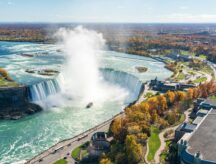Q & A: Maintaining Residency after June 28th 2002
Q. Suppose I land by july. In order to maintain PR status I have to stay in Canada 183 days per year or 2 years out of 5?
Answer: You would be required to be physically resident for 2 out of 5 years. The following is an excerpt from the information published by the immigration department in the Canada Gazette of December 15th:
Bill C-11 sets objective, transparent and flexible criteria to assess a person's right to retain permanent resident status when they wish to return to Canada following an absence. Under Bill C-11, the residency obligation replaces a vague, highly subjective and easy to abuse test in the current Act which is based on an evaluation of the intention of a person to abandon Canada as a place of residence if they have been outside Canada for more than 183 days in any 12 month period. Under C- 11, permanent residents would be required to be physically present in Canada for at least 730 days in every five-year period after becoming a permanent resident. The proposed legislation would allow a permanent resident to count, as part of the required 730 days, time spent working abroad in certain circumstances such as working for a Canadian company or the Canadian government or accompanying their Canadian spouse or common-law partner. This would allow permanent residents a degree of flexibility over their personal or business affairs that is necessary in a world where routine international travel, work periods abroad and multinational business ties are becoming commonplace.
The period under review when assessing the residency obligation is limited to the last five years immediately preceding the examination for persons who have been a permanent resident for at least five years. For persons who have been permanent residents for less than 5 years, the test is that they be able to comply with their residency obligation in respect of the five year period immediately after becoming a permanent resident. Humanitarian and compassionate considerations, which take into account the best interests of affected children, will be carefully reviewed before any loss of residency decisions are rendered for failure to satisfy the residency obligation. This is new as the current Act only allows for humanitarian considerations to be reviewed during an appeal but not during the initial loss of status determination. Bill C-11also provides for an oral appeal to the Immigration Appeal Division of all IRB decisions regarding failure to meet the residency obligation. This includes consideration of any humanitarian and compassionate circumstances and is subject to judicial review by the Federal Court.
- Do you need Canadian immigration assistance? Contact the Contact Cohen Immigration Law firm by completing our form
- Send us your feedback or your non-legal assistance questions by emailing us at media@canadavisa.com



